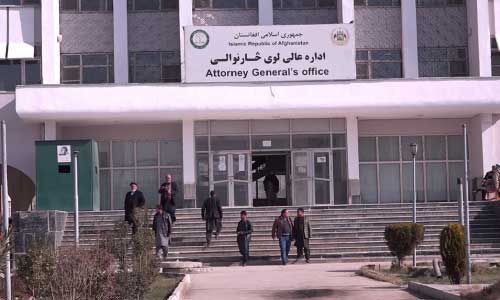KABUL - Two provincial governors and two former governors were on Tuesday referred to the Attorney General’s Office on suspicion of embezzlement of COVID-19 funds, sources have confirmed.
The fraud suspects are Wardak Governor Abdul Yamin Muzaffaruddin, Badakhshan Governor Zakaria Sawda, former Nuristan governor Hafiz Abdul Qayum and former Herat Governor Abdul Qayum Rahimi.
This comes after former Public Health Minister, Ferozuddin Feroz, and a number of current and former health officials were referred to the AGO on suspicion of misuse of authority and embezzlement of COVID-19 funds on Monday.
The Inspector General’s Office of Afghanistan said in a statement that the body was tasked in late June to investigate the issue following a presidential decree to this effect.
“According to Inspector Office’s findings, the former Public Health Minister of the Islamic Republic of Afghanistan, along with four of the ministry’s deputies, including one current deputy minister, is suspected of misuse of authority and embezzlement of resources related to the Coronavirus,” the statement said.
In July, the Inspector General’s Office accused officials of mismanagement and warned that they could be prosecuted.
The Inspector-General Ghezal Haris told media at the time that officials failed to ensure transparency in utilizing government resources.
The inspector general said the office’s initial findings indicate a lack of transparency in the COVID-19 budget expenditure, saying goods had been bought at a much higher price than the market value.
An example was that for a digital thermometer, in Badakhshan, the price had been 12,000 AFs, in Herat 24,000 AFs, and in Logar 91,000 AFs.
“Despite money having been allocated to fight the coronavirus, in some provinces, beds, mobile phones or 75-inch TVs have been purchased,” Haris said.
The Inspector General’s Office also found that although the government paid to purchase new medical equipment, the authorities, in some cases, bought used medical equipment and supplies. (ATN)
Home » Afghanistan » More High-Ranking Officials Face Prosecution over COVID-19 Funding Fraud
More High-Ranking Officials Face Prosecution over COVID-19 Funding Fraud

